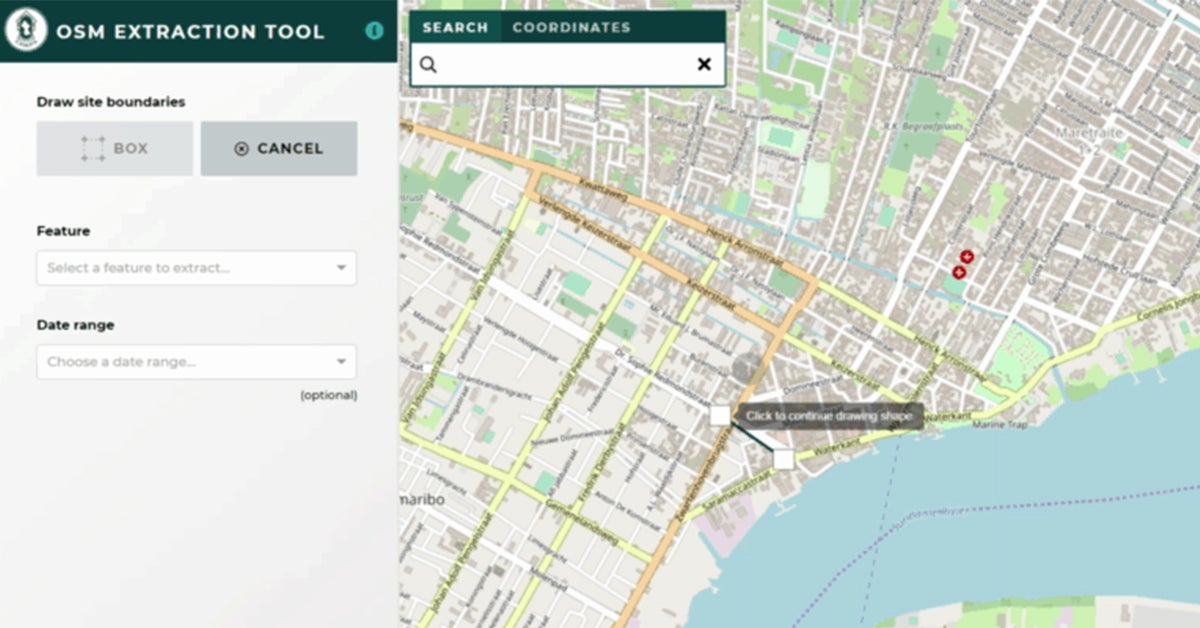Considering the digital revolution, Latin American and Caribbean cities should be poised to generate, analyze, and disseminate urban data. Yet, all too often, our partners do not have the tools necessary for delivering urban services to informal areas, identifying and allocating lands best suited for development while protecting at-risk areas, and working with individual families to assess and improve housing conditions, among other tasks. Much of the existing technology available to support this work is either too expensive, difficult to use, or not designed for the specific conditions of cities in a developing country.
Even in relatively well-established urban areas, development can take place informally or without complete records. Luckily, we have developed a simple interface to extract data. The OpenStreetMap Data Extraction Tool harnesses the power of open data to close information gaps and increase planning accuracy immediately and free of charge. This tool uses a simple interface that allows extracting detailed data from the Open Street Map platform, a collaborative project to create editable and free maps.
OpenStreetMap (OSM) uses crowdsourcing to generate detailed data at the building level. It is not always easy to download this data, however. Previously, an API called Overpass has been used to pull this data, but it requires knowledge of its own specific query language, which can be a significant barrier to urban planners without training in programming.
Our OSM Extraction Tool eliminates the need to write any code and offers a more user-friendly and intuitive interface to extract relevant shapefiles and fill data gaps. The tool allows users to select specific areas; download detailed maps of roads, buildings, and other features in those areas; and update or add information to existing GIS data. Files downloaded from the OSM Extraction Tool can be conflated (selectively merged) with existing records using JOSM (Java OpenStreetMap) editor.
In addition to the open source, the web application provides a user-friendly interface to facilitate access to OSM data, built on the basis of the Overpass API. OSM tags are grouped into more general features in the config file. The configuration can be based on values of the labels, keys of the labels, or several labels at the same time. The specified OSM tags are converted into Overpass API queries and collected from that service.
This tool is part of our Open Urban Planning Toolbox, a set of open-source tools to support each step of the urban development planning process, from early design through implementation and evaluation of projects. Open-source software is made stronger by the community that contributes to it. We welcome users to apply the tools in their own cities, share ideas for improvement, and help identify areas of need that could be addressed with new open-source tools.
Download now this open code! OSM Extraction Tool: Simple interface to extract data from Openstreetmap.


This is a great tool! Please consider adding support for exporting data in the open OGC Geopackage format in addition to the proprietary ESRI Shapefile format.
Its an usefull tool, i want to know if is possible once the shapefiles are donwloaded, create automatically by code multyple new shapefiles on an specific area?